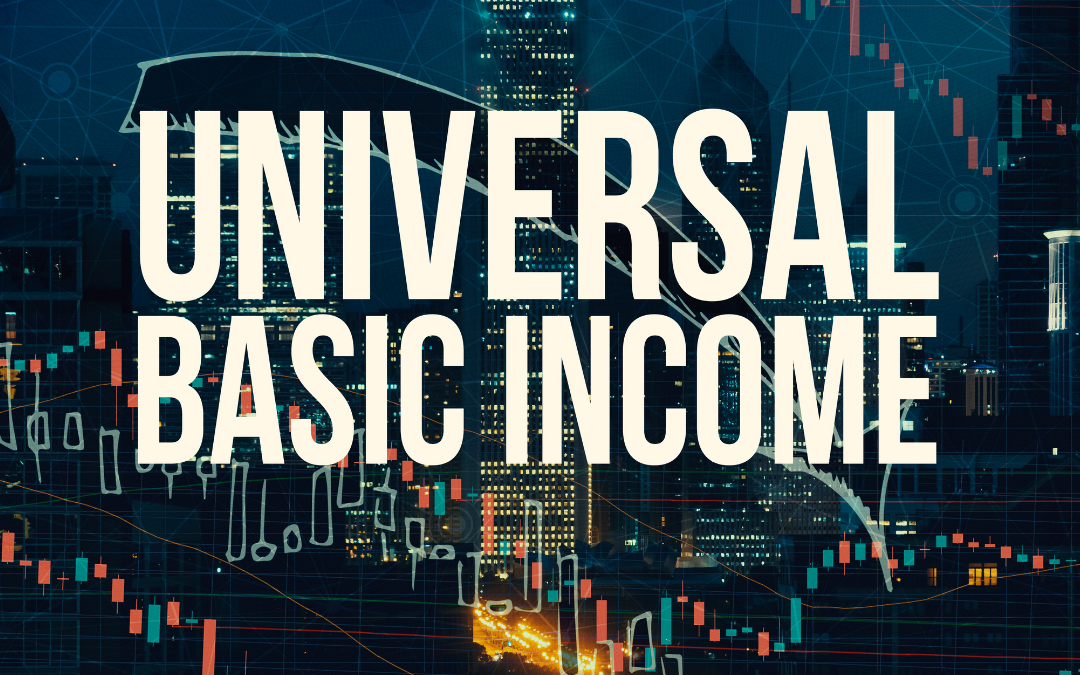Abstract
Universal Basic Income (UBI) is a social safety scheme that provides all citizens with a set amount of money, regardless of their income level and employment status. In developing countries,the idea of UBI has been subject to numerous conversations and public debate with regards to its suitability as a countermeasure to the problem of rising poverty and inequalities . The Economic Survey of India 2016-17 suggested Universal Basic Income as a way to eliminate the loopholes associated with welfare schemes. According to the Economic Survey of India, a UBI incorporates three elements of “universality”(providing everyone with a basic income), “unconditionality”(without any means test) and “agency” (respecting citizen’s choices in managing their finances). This paper provides an overview of different views related to UBI and evaluates its feasibility in India by analysing the outcomes of pilot studies conducted both in India as well as other countries.
Introduction
The World Inequality Report 2022 reveals that the richest 10% of the global population owns 76% of the total wealth whereas the poorest half of the global population have merely 2% of the total wealth. In an era marked by widening economic inequalities and automation- induced job losses, the concept of Universal Basic Income(UBI) is gaining attention among policymakers worldwide. However, the concept of Universal Basic Income is not a contemporary one and has emerged over time. Thomas More’s book “Utopia” laid the foundation for the concept of Universal basic income in the sixteenth century and since then, various thinkers including Thomas Paine, John Stuart Mill, Bertrand Russell, Martin Luther King Jr. and Milton Friedman have advocated the idea of basic income in one form or the other. Uniform Basic Income is an income support mechanism in which every citizen gets a fixed amount of money at regular intervals. It is provided by the government, irrespective of a person’s income level or employment status. The fundamental principle behind UBI is to ensure economic security and increase the welfare of citizens.
The idea of Universal Basic Income entails varying perspetives, with proponents highlighting its merits and the opponents raising concerns about its drawbacks.
- Arguments in the favour of UBI are :
- The “universal” aspect of UBI guarantees that every individual of a country receives a sufficient amount of money to fulfil his basic needs without making any distinction among recipients. Multiple studies find a close relation between the emotional well-being of a person and challenges related to poverty and unemployment. Thus, a basic income has the potential to improve the well-being of individuals by lifting them out of poverty.
- Every individual possesses a thorough understanding of their needs and the order in which they have to allocate their resources priority-wise. A UBI grants psychological freedom to people by allowing them to spend the money according to their will.
- A Universal Basic Income addresses the issue of exclusion error by eliminating the need of identifying the beneficiaries. It reduces the burden of the government and ensures greater administrative efficiency.
- It acts as a safety net for the poor against unforeseen situations such as Covid -19. In order to evaluate the impact of UBI during the pandemic, a study was conducted in Kenya in 2020. It revealed that the transfer recipients experienced fewer vulnerabilities in terms of mental health than those who didn’t receive the transfers.
- A UBI has the potential to enhance the status of women by ensuring greater economic independence. A secured income improves the role of women in the decision making process.
- Arguments against the implementation of UBI are :
- The critics argue that the cost of UBI’s implementation would put a huge strain on the government’s budget. To finance UBI, a significant amount of revenue will have to be generated, placing a burden on the taxpayers. Also, “universality” would imply the upper class recieving the same income, regardless of the fact whether they require it or not. It might irk the taxpayers.
- Another major concern with basic income is that it might disincentivize work. Income earned through diligent efforts motivates a person to achieve higher goals . However , with an ensured basic income , he might prioritise leisure over work .
- Existing welfare schemes assure that the basic needs of the poor are being fulfilled. The policymakers raise apprehension that poor households might spend the entire transfer payments to buy undesirable goods such as tobacco, alcohol and other substances.
- Lastly, a UBI might create inflationary pressures in the economy.If every individual is given a fixed amount of money, the demand for goods and services will increase. In order to meet the rising demand, the producers will further increase the price. As a result , the cost of living will increase.
Need for Universal Basic Income in India
The idea of Universal Basic Income in India can be traced back to the early efforts of the former Planning Commission in the 1960s. More recent conversation on the UBI began in 2008, when the erstwhile chief economic advisor Arvind Subramanian along with Devesh Kapur and Partha Mukhopadyay published a paper titled “ The Case for Direct Cash Transfers to the Poor ”in which they argued that the existing ineffective welfare schemes as well as subsidies for food, fuel and fertilisers must be replaced with the direct cash transfers.
However, the concept of Universal Basic Income entered into mainstream discussion when the Economic Survey of India 2016-17, incorporated an entire chapter on Universal Basic Income. The survey highlighted two major problems with the welfare schemes. According to the Survey, there were about 950 central and centrally sponsored sub schemes among which most of them were repetitive and prolonged for over 15 years, leading to exhaustion of resources and futile government efforts.
Another problem mentioned by the survey was poor targeting. As per the findings of the survey, in 2011-12, 40 percent of beneficiaries under the Public Distribution System and 65 percent beneficiaries under MGNREGA were deprived of the benefits because of exclusion error. In 2015-16, States with half of the poor in the country had access to only one third of the resources spent on the scheme MGNREGA. This stresses the fact that most of the poor were unable to reap the benefits of welfare schemes and to uplift themselves from the vicious circle of poverty.
With a view to eliminate these limitations and to address the issue of poverty with greater administrative efficiency , the Economic Survey 2016-17 mooted the idea of Universal Basic Income. Under UBI, the income will be transferred straight to the recipient’s account which would reduce the out of system leakages. Furthermore, it would also decrease the burden on the government by eliminating the tedious task of distinguishing between the poor and the non poor. The survey proposed a basic income of ₹7,260 to 75% of the population and emphasised upon the two prerequisites for the successful implementation of Universal Basic Income. First, financial inclusion through JAM needs to be strengthened in order to transfer the amount directly to the bank accounts of the beneficiaries. Secondly,the government will have to address an important question regarding the share of both the centre and the states in funding UBI.
Click Here To Download The Paper


📌Analysis of Bills and Acts
📌 Summary of Reports from Government Agencies
📌 Analysis of Election Manifestos

